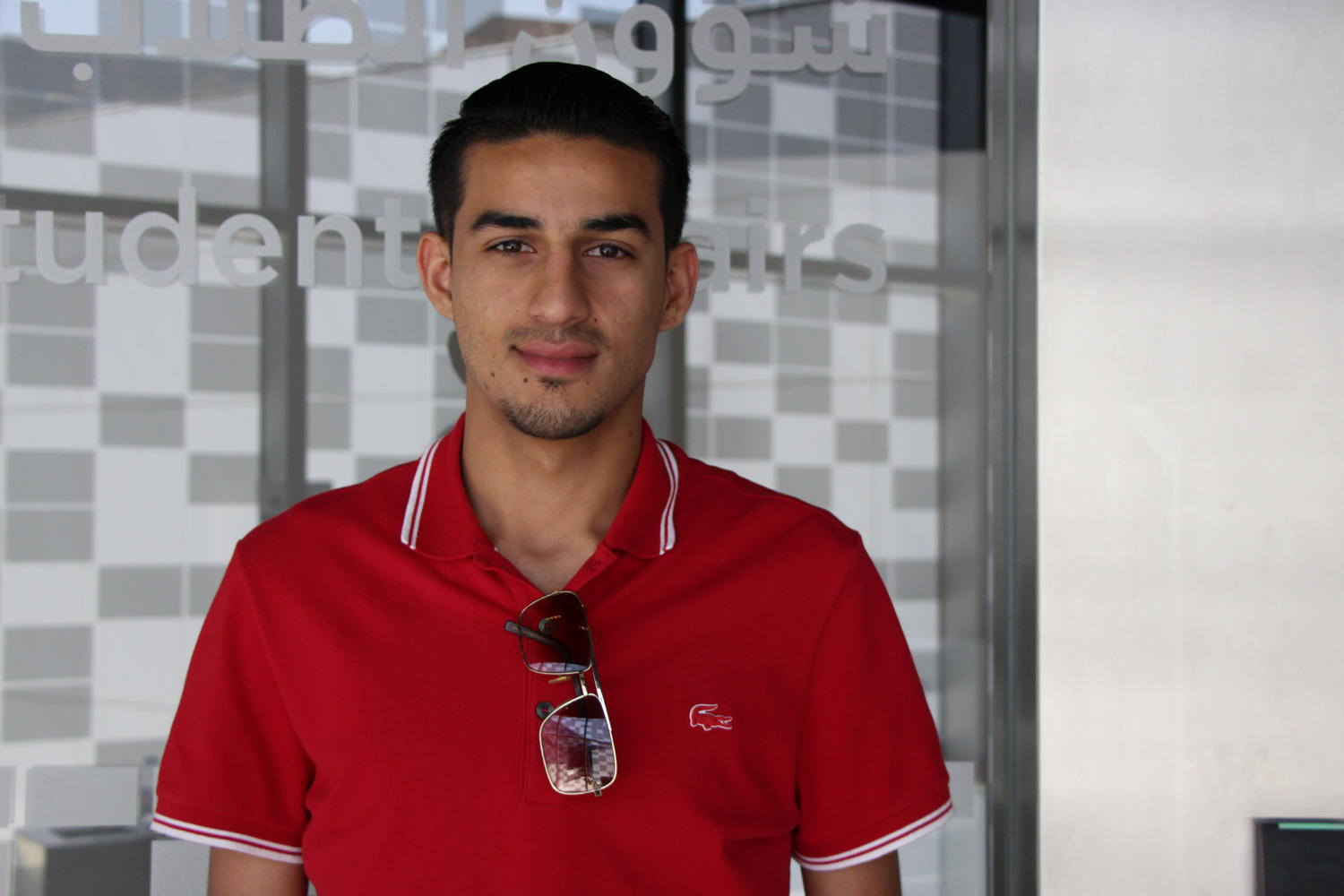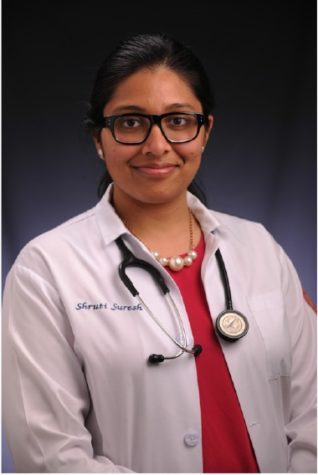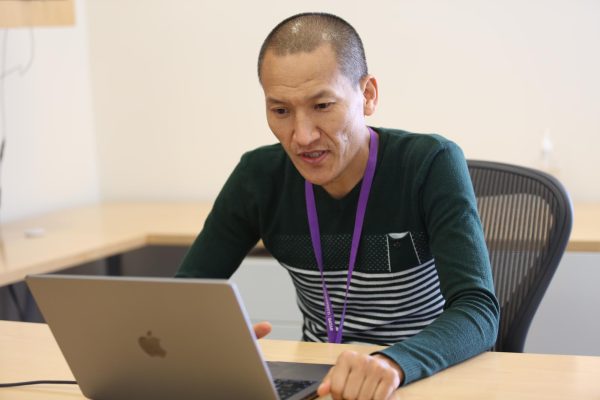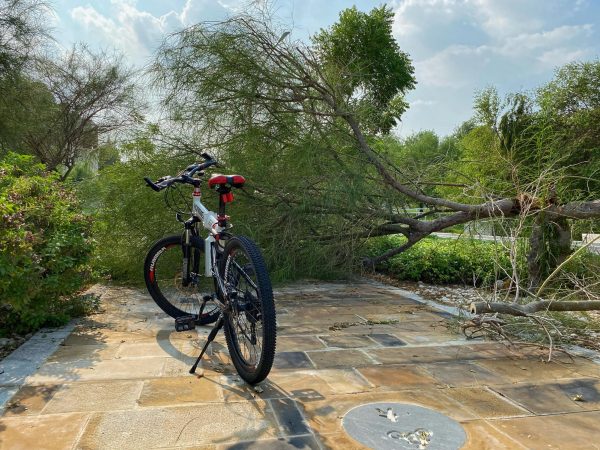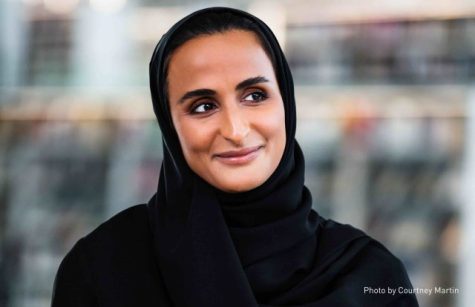Class of 2017: Profiles & Portraits
Education City universities concluded their graduation ceremonies for Class of 2017 earlier this week. As members of the graduating class step into the next phase of their lives, The Daily Q looks at some of their stories and the experiences that led them here.
MinKyung Kang (Erica), CMU-Q
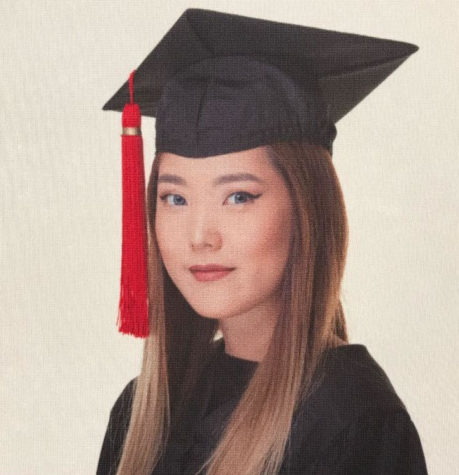 As a high school student who got in with the wrong crowd, MinKyung Kang, now 24, was constantly told she had no future and would fail by her family, friends and peers. But Kang’s dedication to turning her life around brought her, first, to Pusan National University in Korea and then to Carnegie Mellon University in Qatar to study biological science.
As a high school student who got in with the wrong crowd, MinKyung Kang, now 24, was constantly told she had no future and would fail by her family, friends and peers. But Kang’s dedication to turning her life around brought her, first, to Pusan National University in Korea and then to Carnegie Mellon University in Qatar to study biological science.
Kang had decided to turn her life around. She re-learned middle school algebra in high school to keep up with the curriculum and was ultimately admitted to Pusan National University in South Korea as a member of the Class of 2013. “There was some card in my high school saying, ‘she got into good university for the first time in the history,’” Kang recalled.
After her first semester at university, Kang decided to travel internationally. After watching an advertisement on TV that painted Spain as a “passionate” country, she was determined to travel there. “At that point, the most thing I needed was passion,” Kang said. When she told her mother that she wanted to backpack in Europe all alone using her scholarship money, her mother’s response was not particularly positive, but Kang managed to convince her.
Kang visited Granada in Andalusia, where she bumped into Korean tourists who recommended the Alhambra Palace, a UNESCO World Heritage site. The palace was her first interaction with Islamic architecture. She was in awe of the uniqueness and detail of the carvings and designs on the palace. Kang was also surprised: “I thought … Arabs were terrorist, but if they were bad people, they would not be able to build such a beautiful building,” she said. She realized she had fallen prey to the media’s negative portrayals of Islam and Arabs, so she decided to visit a Middle Eastern country the next time she travelled.
This led to her visiting Egypt during her winter break, which she thought of as the quintessential Arab country, to get to know the region, the religion and the people. “I got out of the bus [near Tahrir Square] and I see thousands and thousands of people in the Tahrir Square, and I had no idea there was an actual revolution – the first day of Arab Spring in Egypt and I had no idea,” she said. “I thought I was going to be in a Hollywood movie,” she added, laughing. Kang ended up walking to her guesthouse, where her hosts told her that the phone lines and internet access had been shut down by the government. She was stuck in Egypt for the next six days. Kang described it as the biggest historical moment in her life. It was the revolution that struck a chord in her and she began to sympathize with those going through it.
Kang’s journey back to South Korea from Egypt marked the beginning of her sophomore year at Pusan National University. “I was doing really well, but I couldn’t stop thinking about the Middle East,” she said. She was particularly saddened by the lack of Korean support for the region. “During the Korean war, even Ethiopia provided us with aid, but we are not ready to give it back,” said Kang, calling the younger generation in her home country “spoilt.” She added that the schism between the Arab world and the rest of the world boils down to misunderstandings about religion, extremism and Muslims’ portrayal in the media.
Soon after her return, Kang decided that she wanted to communicate with the Arab community by learning about its culture and religion so she could help counter prejudice. She decided to transfer to a university in the Middle East, but her decision did not go as planned: her mother was very upset because she was a rising junior and doing quite well. The idea did not sit well with others around her either, who told her that she would likely fail and waste her time. But Kang was determined to “be a bridge between South Korea and the Middle Eastern and North African regions.”
After completing her sophomore year at Pusan, Kang took a gap year, during which she looked for universities in the Middle East. She found out about Qatar and the universities in Education City through an article about Sheikha Moza bint Nasser and her work. Kang lists Sheikha Moza as one of her biggest influences. Carnegie Mellon University in Qatar was a perfect fit because it offered both biological science and business classes, subjects that interested her most during her time at Pusan. In April 2013, she was accepted to the university. “But that day was the most confusing day of my life,” she said. She was concerned about failing due to her limited English-language skills and being ridiculed by her peers. “Someone asked me, ‘Will you regret it if you don’t take this challenge?’ and I thought if I didn’t do this, I will regret it forever in my life,” she said.
Kang moved to Qatar in August 2013 and said her first year in CMU-Q was “hell.” She remembers not being able to understand anything during convocation or in her classes. “I cried every day and admired everyone around me. People could contribute but I couldn’t understand anything,” Kang recalled solemnly. But CMU-Q’s Associate Dean Mark Stehlik offered support. When he called her to his office and spoke to her, she could not understand what he was saying.
“I said, ‘I don’t know English, please speak slowly,'” she recalled. She remembers the one question he asked that she understood: “Do you want to be successful?”
“I said yes, and then he said, ‘as long as you want to be successful, I will help you. So, don’t worry,’” she recounted. She described this as the biggest support she has ever received in her life. The professors at Pusan had discouraged her from applying to an American university because she could not speak English. “How dare you apply to CMU-Q, you speak worse English than my son,” she recalled them saying.
During her first year at CMU-Q, Kang’s goal was to pass. Despite wanting to work hard, she could not, simply because she could not understand the language and the assignments. “It was very overwhelming and hurt,” she said. By the end of her first year, she picked up some of the English language and could ask questions. “It started to get better and I was less worried about failing,” she said. In her second year, Kang decided to establish The Dreamer’s Club “to encourage students around me to have big dreams and goals in their life,” she said. The club held meetings and workshops during which students made bucket lists, attended guest lectures and shared their goals.
“I was failing so hard during my first year here,” Kang said. But by her senior year, her language skills had improved considerably and she had become involved in the community. “If you really want it, you can make it,” she said. The fact that she is now a graduate of CMU-Q proves this, she added.
Kang is currently working on a book detailing her experiences, so she can inspire others like her to not be afraid and take chances.
Mohammad Jaffrin, TAMUQ
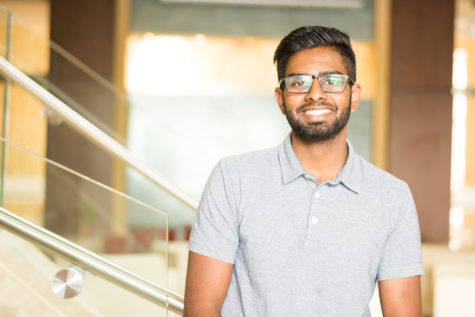 Mohammed Jaffrin, 22, is a mechanical engineering graduate from Texas A&M University at Qatar. While currently a successful engineer and professional, he did not always want to pursue this degree.
Mohammed Jaffrin, 22, is a mechanical engineering graduate from Texas A&M University at Qatar. While currently a successful engineer and professional, he did not always want to pursue this degree.
“I definitely did not want to be an engineer growing up; in fact, I doubt any kid ever dreams of being an engineer. Nevertheless, here I am, an engineer,” he said.
“As kids, we dream of the impossible, but over time we come to our senses and change to proven professions that will allow us to sustain a comfortable life style,” he said, “The biggest challenge over the past four years has been engineering.”
Not long into his four years, Jaffrin realized engineering is not what he really wanted to do. But he was adamant on completing his degree and finishing what he had started. “I was aware that, even if I didn’t want to work in engineering, the professional skills and qualities I gain from engineering can be adapted to any career that I want to pursue,” Jaffrin explained.
Jaffrin is originally from India and has lived in Qatar all his life. He managed to stay active throughout his four years at TAMU-Q, both on and off campus. As a freshman in fall 2013, he joined a number of student organizations and clubs, such as the Student Engineers’ Council, the American Society of Mechanical Engineers, the TAMU-Q Cricket Club, and the ChemE Car Team, among others.
These organizations shaped Jaffrin’s experience at TAMU-Q. He started off as a general member in the SEC, then became the vice president and finally the president; the council won TAMU-Q’s ‘Organization of the Year’ under his leadership. It is also counted as the largest and most active organization in TAMUQ.
The SEC is not the only organization Jaffrin has strenuously invested in. He became a front desk assistant at HBKU Housing and Residence Life in spring 2014 and subsequently became a Community Development Advisor. Having gained valuable experience from both these demanding roles, he was promoted to Front Desk Manager in his senior year. He said he learned a lot more about professional life as a student employee than he did in any of his university classes.
“Fun fact: Jaffrin is never wrong, even when he’s actually wrong. He’s also the kind of person who can be both a friend and a manager; he also loves to ask random questions,” said Jaffrin’s friend, Ahmed Alyazidi, a chemical engineering junior at TAMU-Q and a fellow Community Development Advisor in the residence halls.
Aside from this work experience, Jaffrin also attended multiple conferences, leadership exchange trips, such as Spring Leadership Exchange Program (College Station, Texas) in the spring of 2016, and service trips, such as the Aggie Service Learning Experience (Nepal) in the summer of 2014 and the Aggie Service Learning Experience (Thailand) in the summer of 2015.
His advice to freshmen is “the next four years are not going to be easy, the next four years you will go through hell and back. And if you don’t, then you are doing university wrong.”
“Make the most of the four years, gain as many experiences as possible, get involved in as many different activities as possible,” Jaffrin added. “You are not here just to get a 4.0, university is so much more, so make the most of it! Go out there and set the foundation for your future!”
Portraits: Seniors of EC
Nicole Suarez, GU-Q
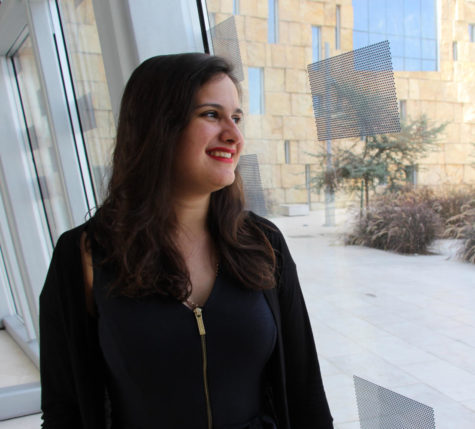 Nicole Suarez, 20, came to the Georgetown University School of Foreign Service in Qatar when she was just 16 years old. She is now an international politics senior at the university.
Nicole Suarez, 20, came to the Georgetown University School of Foreign Service in Qatar when she was just 16 years old. She is now an international politics senior at the university.
Suarez is Spanish-Brazilian but lived in China for most of her life before moving to Qatar for college. “I’ve lived outside of Brazil for such a long time and I’m used to traveling because my dad’s a pilot, so I feel like I just needed that adventure in my life,” said Suarez. As someone longing for adventure, Suarez decided to study in the Middle East.
During her time in China, Suarez learned how to speak Mandarin Chinese in addition to English and Spanish. Additionally, she was able to learn French in a course offered at SFS-Q.
Before applying to SFS-Q, Suarez applied for chemical engineering and computer science programs in the United States, Canada and the United Kingdom. Although she “loved chemistry growing up,” Suarez did not want to pursue a career in this field. Her love for traveling and exploring different cultures led her to apply to SFS-Q. “I’m social, I like to be around people, I love being around different cultures, which made more sense to be a politics major,” said Suarez. “I feel closer to my friends here than those in China because we have a similar culture. The Latino culture is very similar to the Arab culture,” she added.
When asked about her favorite memories, Suarez said, “One of my proudest moments was writing an eight-page paper in an hour and fifteen minutes, and I do not know how, but I got a pretty good grade.” Regarding the pressure of senior year, Suarez said, “I feel that once I have the diploma in my hand, all the weight will be off my shoulder. I feel like now with graduation coming it’s starting to hit me that I’m actually leaving. Until now I was like yeah, I’ll be back in August, but everyone is registering for next semester’s classes while I am applying for a job.”
In her senior year, Suarez wanted to participate in as many activities before leaving. She got a certificate in Media and Politics while juggling different activities such as event management and her university work.
International politics taught her about international law and diplomacy as, according to Suarez, it encompasses everything. As an outgoing and outspoken person, Suarez’s education gave her the opportunity to voice her views and opinions freely. “You cannot just follow what everyone else says,” Suarez said.
Suarez was involved in the university’s sports and academic clubs by being the leader of the basketball team and the Model United Nations’ chief of staff. She also traveled to Oman, Zanzibar and Cambodia to do community work.
“The trip made me appreciate the sense of community in the country regardless of the limited sources they had,” she said about the Cambodia trip.
After a long ride with “good and bad times”, Suarez feels that her experience with SFS-Q is not completely over because she always has a place to go back to.
“I feel like more about your life changes in college than in high school. You are changing and developing as a person. It’s something that you can never really replace. I don’t think I have any regrets about any of the decision of friends or anything I’ve made in the past four years. I am very happy that I came here,” said Suarez.
With her four-year experience coming to an end, she says she feels more lost than when she applied at SFS-Q.
“I have no clue what I am doing [in the future]. I learned other things that I liked other than diplomacy, but I also feel like I didn’t learn enough about these things yet to work on them” said Suarez.
Shruthi Suresh, WCM-Q
From waking up at five in the morning for hospital rounds to delivering a woman’s child, Shruthi Suresh’s six-year journey in Weill Cornell Medicine in Qatar has now come to an end.
“After six years it feels weird, like it has been forever because you establish strong relations and Cornell becomes a home to you,” Suresh said.
Hospital rounds were a part of Suresh’s major; she often had to wake up early in the morning to check on patients while balance studying as well. During her time at Cornell, Suresh had several awkward moments, including mixing up patients and their conditions.
“I once said there is a 68-year-old woman with testicular cancer,” Suresh recalled.
Taking care of patients in hospital rounds helped Suresh acquire better communication skills. This also helped her to get out her comfort zone.
“The power that you’re given to deal with things and how much people respect and trust you with their care – all that stuff starts becoming more important when you’re given that responsibility,” said Suresh.
Suresh was admitted to WCM-Q at the age of seventeen. She had little experience dealing with difficult situations, she said. But now, at 23, she has developed the ability to handle difficult circumstances.
“In medical school, you become more mature and start thinking about things and it does make you a better person – makes you a more thoughtful person,” Suresh said.
During a hospital round at age 22, a woman went into labor which required Suresh to help her deliver the baby. She had previously watched videos of deliveries and assisted in c-sections, including a surgery in which she helped deliver triplets. But Suresh described this experience as “scary” because she was not just assisting, but rather pulling out the child herself. This experience made her see the outcome of pain as well, Suresh added.
“During the [labor] time, you’re going through hell, everything can seem terrible and women say ‘I wish I were dead’ while they’re in so much agony. As soon as the baby is in their arms, they’re happy and nothing matters anymore,” said Suresh.
A change that she said she has to get used to is being given the title “doctor”. “I just heard my colleague say ‘I’m Doctor’ before his name and I started laughing because it just feels weird,” she said.
With six years coming to an end, Suresh finds it hard to separate from her colleagues at WCM-Q. She has established close relationships with her batch and the college has grown into, what she now describes, as her home. In the past, she viewed her colleagues as competitors, but she said her time with them made her discover different dimensions to each of their personalities. She has been through similar moments with them and now feels closer to them than before, feeling that they are all “like brothers and sisters”.
“I wouldn’t have it any other way. A lot of the people I met taught me new things. These years have been awesome,” Suresh said.
Like other graduating seniors, Suresh is now determined to launch her career. She said she is looking to continue studies in her chosen area of specialty—preliminary medicine.



